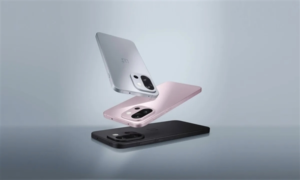iPhone 18 Pro will be the first to launch Apple’s second-generation 5G baseband: replacing Qualcomm

Mark Gurman revealed that Apple’s first self-developed 5G baseband chip will be used in iPhone SE 4, iPhone 17 Air and low-end iPad devices.
The leak pointed out that Apple’s first self-developed 5G baseband is code-named Sinope. In order to create a 5G solution to replace Qualcomm, Apple has invested billions of dollars, established testing and engineering laboratories around the world, and spent about $1 billion to acquire a division of Intel.
After hard work, Apple’s first self-developed 5G baseband will officially meet everyone next year. It is reported that Sinope will only support four-carrier aggregation and not 5G millimeter wave. In contrast, Qualcomm products can support six or more carriers at the same time.
In addition, Mark Gurman said that the upper limit of Apple Sinope’s download speed is about 4Gbps, which is lower than Qualcomm’s solution. However, these shortcomings and regrets will be compensated by Apple’s second-generation 5G baseband chip.
Mark Gurman revealed that Apple’s second-generation 5G baseband will be unveiled in 2026 and will be first equipped with the iPhone 18 Pro series. The 2027 iPad Pro will also use this baseband chip. According to him, Apple’s second-generation 5G baseband chip will have a download speed of 6Gbps and support 5G millimeter waves.
Mark Gurman also said that Apple will launch the third-generation 5G baseband in 2027. Apple hopes that this generation of chips will surpass Qualcomm’s solutions, and Apple plans to complete the transition from Qualcomm to self-developed baseband in the next three years. By then, Apple will achieve self-sufficiency in baseband chips.
Industry insiders said that starting from next year, Apple will adopt a “two-pronged” strategy – on the one hand, it will continue to purchase Qualcomm chips, and on the other hand, it will promote self-developed alternatives, which reflects Cook’s superb skills in supply chain management.
With the gradual application of Apple’s self-developed 5G baseband chips, the industry generally believes that this will help Apple solve the problem of being “choked” by Qualcomm for a long time and enhance the company’s autonomy and competitiveness in the field of mobile communication technology.


Kazam is Focused on creating and reporting timely content in technology with a special focus on mobile phone technology. Kazam reports, analyzes, and reviews recent trends, news and rumors in mobile phone technology and provides the best possible insights to enhance your experience and knowledge.













